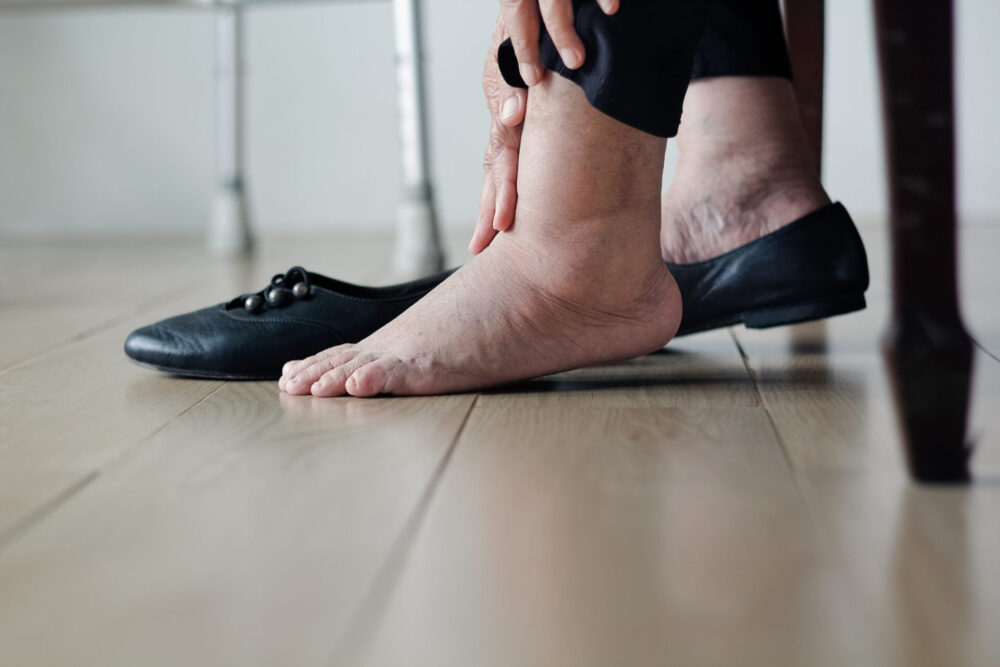Hypertension, or high blood pressure, is a very common problem, affecting an estimated 1 in 3 adults in the UK. However, many of these people go undiagnosed and untreated — at least until their blood pressure starts to cause them problems.
High blood pressure is one of the biggest risk factors for serious health issues such as stroke and heart attack in the UK. Understanding the different stages of hypertension means that it’s possible to take action to get it under control, before it starts to affect your health.
What is hypertension?
Hypertension is most often referred to as high blood pressure. It can be serious if left untreated.
Blood pressure is the amount of force that your heart uses to pump oxygenated blood around your body. It’s measured using two numbers known as systolic and diastolic. The systolic number (higher number) in a blood pressure reading measures the pressure in your arteries when your heart beats. The diastolic (lower) number in a blood pressure reading indicates the pressure in your arteries when your heart is resting between beats.
Hypertension is used to describe when these readings are particularly high, meaning that the pressure in your arteries is excessive. If this pressure is too high, it puts extra strain on your arteries and your heart.
However, it’s important to note that everyone’s blood pressure can change from time to time. For example, if you are feeling particularly stressed or anxious, it’s normal for your blood pressure to be higher than usual. When doctors talk about hypertension, they are referring to the general rate that your blood pressure consistently falls into when it is checked when you aren’t stressed or suffering from ill health.
Hypertension is diagnosed by simple blood pressure checks.
What causes hypertension?
It’s not always known why some people suffer from high blood pressure and others don’t. However, there are factors that are proven to increase the risk of someone developing high blood pressure and the associated complications.
Risk factors for developing hypertension include:
- Being overweight/obese
- Eating too much salt
- Not eating enough fruit and vegetables
- Drinking excessive alcohol and/or caffeine
- Smoking
- Poor sleep
- Being over the age of 65
- A family history of hypertension
- Being of black African or black Caribbean descent
Can hypertension be caused by an underlying health condition?
Yes — in as many as 1 in 20 cases of hypertension, it is caused by an underlying health condition or as the result of taking medication for another health issue.
Some of these health conditions include:
- Diabetes
- Kidney disease
- Chronic kidney infections
- Obstructive sleep apnoea
- Hormone issues including an underactive or overactive thyroid
- Lupus
Some of the medications that can increase your blood pressure can include:
- The contraceptive pill
- Steroids
- Anti-inflammatory medications such as ibuprofen
- Some antidepressants
- Cough and cold remedies
- Some recreational drugs, including cocaine and amphetamines
Stages of hypertension
There are four different stages of hypertension. Let’s look at these in more detail, including what action you need to take, if any, at each stage.
Normal blood pressure
Normal blood pressure readings are systolic less than 120mm Hg, and diastolic less than 80mm Hg. If you routinely have normal blood pressure, no treatment is necessary. Your blood pressure will be measured regularly at any general check-up appointments you may have.
Elevated blood pressure (pre-hypertension)
An elevated blood pressure reading is indicated if the systolic measurement is between 120 and 129mm Hg or the diastolic reading is below 80 mm Hg.
This is also sometimes known as pre-hypertension and can often be easily reversed by making some simple lifestyle changes such as reducing the amount of salt in your diet, losing a little bit of weight or incorporating some more exercise into your weekly routine.
Your doctor may wish to reassess your blood pressure every 3–6 months to see if you are able to reduce them to normal levels.
Stage 1 hypertension (moderate)
If your systolic reading is between 130 and 139mm Hg or your diastolic reading is between 80 and 89mm Hg, you have stage 1 hypertension.
Taking steps to reduce your blood pressure should be a priority, as your condition could start to impact your health. You are also at increased risk of a stroke or heart attack. To help you reduce your blood pressure levels, your cardiologist will recommend that you combine lifestyle changes such as those listed above with medication. You may need to try several medications to find the variety that is most effective.
Stage 2 hypertension (severe)
If your systolic reading is 140mm Hg or higher, or your diastolic reading is 90mm Hg or higher, you have stage 2 or severe hypertension.
People with stage 2 hypertension are usually recommended to try targeted two-drug therapy to bring their blood pressure down to safer levels. Positive lifestyle changes such as those described above will further help to naturally reduce your blood pressure.
What if my blood pressure readings fall into different stages?
If your blood pressure readings fall into different stages — for example, your systolic reading is 130mm Hg but your diastolic reading is 75mm Hg — the stage with the higher number is the one that counts.
So in this case, you would still be classified as having stage 1 hypertension and not normal blood pressure.
Treatment and management of hypertension
For many people, simple lifestyle changes can be highly effective at reducing their high blood pressure and bringing it down to a level where their health isn’t adversely affected.
However, patients with moderate to severe hypertension may be recommended to use medication to reduce their blood pressure more quickly while the benefits of lifestyle changes come into force.
Lifestyle changes to reduce hypertension
Simple lifestyle changes that you can implement include:
- If you are overweight/obese, reducing your weight so that you have a healthy BMI
- Stopping smoking
- Reducing your salt intake to less than 6g/ a teaspoon per day
- Eating a low-fat, balanced diet that is rich in nutrients
- Getting regular exercise, such as walking, jogging or swimming
- Reducing your usual alcohol consumption
- Drinking less caffeine
These positive lifestyle changes won’t only help to reduce your blood pressure but could also have a positive effect on other health conditions and your overall wellbeing.
Taking medication to reduce hypertension
There are several different medications that can be used to control high blood pressure, and that may be a valuable treatment alongside lifestyle changes. Exactly which treatment you’ll be offered will depend on how old you are.
People who are under the age of 55 are usually offered medications called ACE inhibitors or ARBs. These reduce your blood pressure by relaxing your blood vessels. ARBs or angiotensin-2 receptor blockers work in a similar way.
People over the age of 55 or of African or Afro-Caribbean descent are normally offered a type of treatment known as a calcium channel blocker which helps to reduce blood pressure by widening the blood vessels.
You may have heard of a treatment called beta-blockers. These used to be very popular hypertension treatments that reduce blood pressure by slowing down your heart so that it beats with less force. However, today beta-blockers are considered less effective than other treatments and are often only prescribed where others have been unsuccessful.
With careful treatment and monitoring, it’s possible to manage your high blood pressure so that it doesn’t have a negative impact on your health or quality of life.
Worried about hypertension?
If you are concerned about your blood pressure, or if you have any questions about hypertension, get in touch with us today and schedule an appointment with our expert cardiologist, Dr Georgios Karagiannis.
We offer hypertension treatment and individualised care plans to help you manage high blood pressure.
Request A Call Back
Please fill in the contact form and we will call you back at a time most convenient for you.
RECENT POSTS




